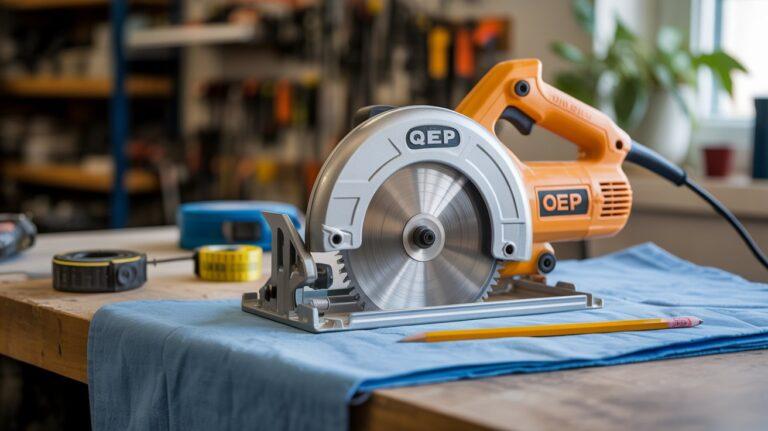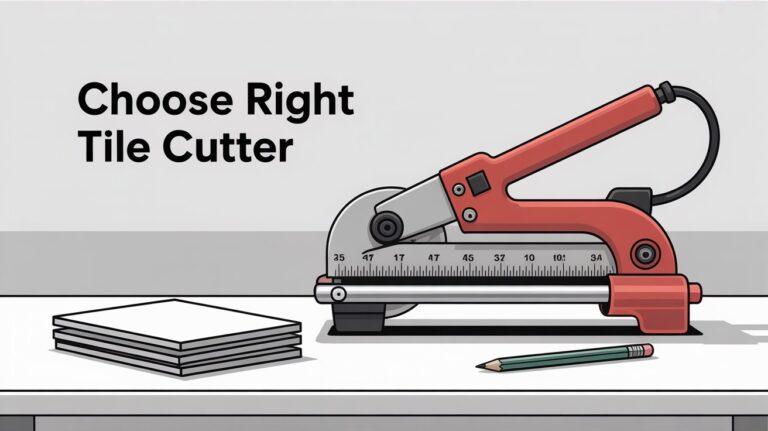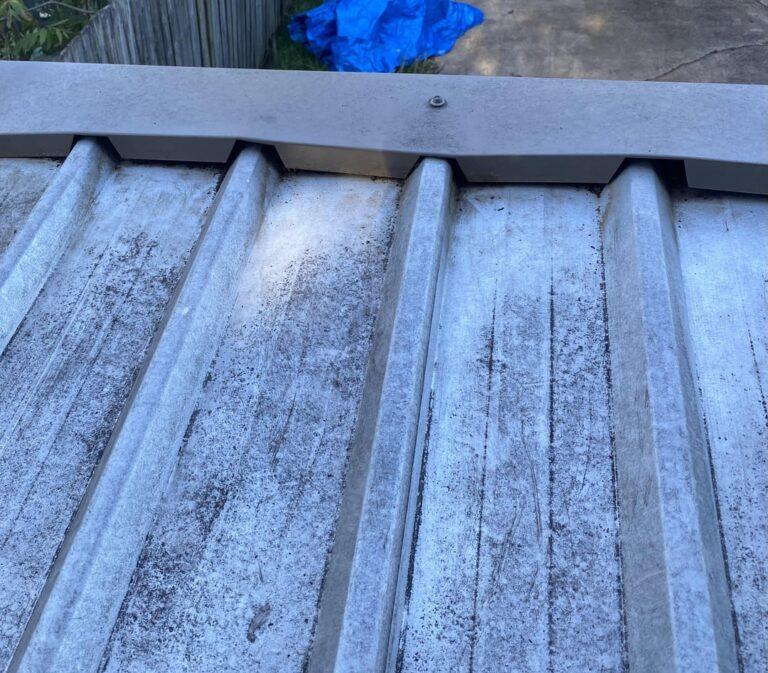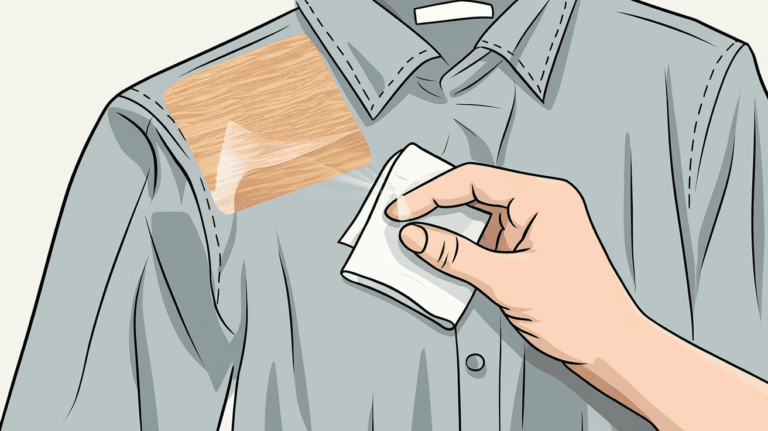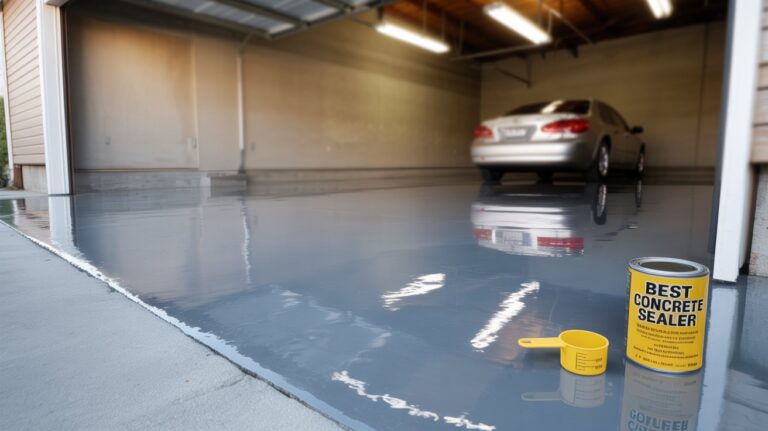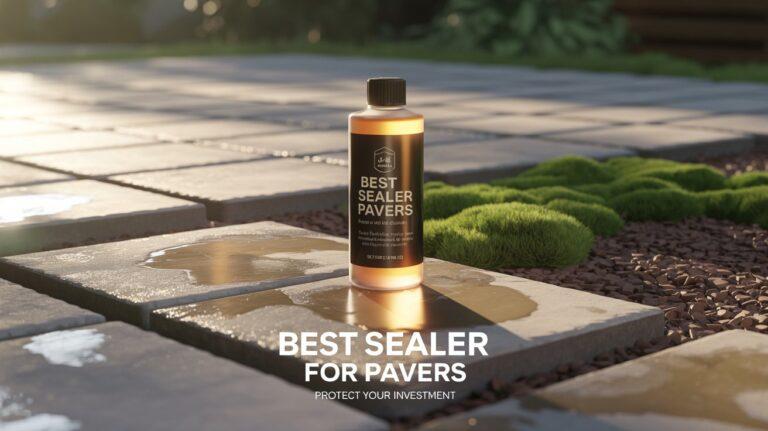What is the Best Type of Concrete Sealer: Ultimate Guide
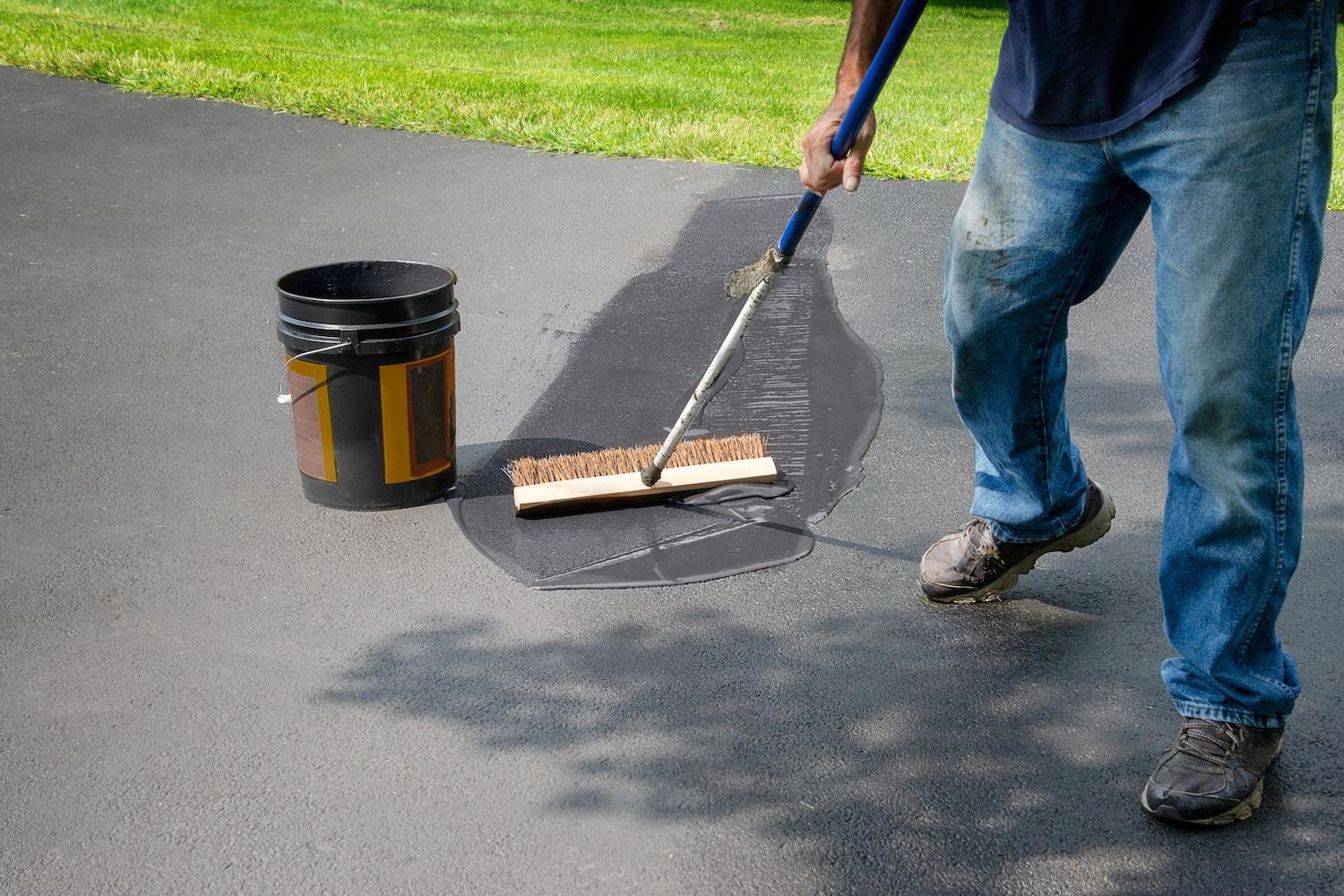
The best type of concrete sealer depends on your needs. Different sealers offer various benefits.
Concrete sealers protect and enhance the appearance of your surfaces. They guard against stains, water, and wear. Choosing the right one can be confusing. There are many options like acrylic, epoxy, and penetrating sealers. Each has its own strengths and weaknesses.
Understanding these can help you make the best choice. This guide will walk you through the different types of concrete sealers. It will explain their features and uses. By the end, you will know which sealer suits your project best. Let’s dive in and explore the world of concrete sealers.
Introduction To Concrete Sealers
Concrete sealers provide a protective layer over concrete surfaces. They help maintain the concrete’s appearance and durability. Whether you’re dealing with a patio, driveway, or floor, a good sealer can extend the life of your concrete. The right sealer can also enhance its look.
Why Seal Concrete?
Concrete surfaces face various challenges. Weather, stains, and wear can damage them. Sealing concrete protects it from these elements. It prevents water from penetrating and causing cracks. It also shields against stains from oils and chemicals. Sealing makes cleaning easier too. A sealed surface is more resistant to dirt and grime.
Types Of Concrete Sealers
There are different types of concrete sealers. Each type offers unique benefits. The main types include penetrating sealers, acrylic sealers, epoxy sealers, and polyurethane sealers.
Penetrating sealers soak into the concrete. They form a chemical barrier against moisture. These sealers are ideal for outdoor use. They do not change the appearance of the concrete.
Acrylic sealers create a thin, protective film on the surface. They can enhance the color and give a glossy finish. They are easy to apply and dry quickly.
Epoxy sealers offer a strong, durable surface. They are perfect for high-traffic areas. Epoxy sealers can also add a decorative touch. They come in various colors and finishes.
Polyurethane sealers provide a robust, long-lasting finish. They resist chemicals, abrasions, and impacts. These sealers are suitable for both indoor and outdoor use. They can also enhance the appearance of the concrete.
Acrylic Sealers
Acrylic sealers are a popular choice for concrete surfaces. They offer a clear, protective layer over the concrete. This enhances the look and increases durability. Many homeowners and professionals prefer acrylic sealers due to their ease of use and effectiveness.
Features Of Acrylic Sealers
Acrylic sealers provide a glossy finish that enhances the concrete color. They are available in both water-based and solvent-based formulas. Water-based acrylic sealers are eco-friendly and have low odor. Solvent-based acrylic sealers offer a higher gloss and stronger protection. Both types are UV-resistant, preventing yellowing from sun exposure. Acrylic sealers dry quickly, allowing for fast project completion. They are also breathable, which means moisture can escape from the concrete. This reduces the risk of damage from trapped moisture.
Pros And Cons Of Acrylic Sealers
Acrylic sealers are easy to apply with a brush, roller, or sprayer. They enhance the appearance of concrete with a clear, glossy finish. The UV resistance helps to maintain the look over time. They dry quickly, which is great for busy schedules. The breathable nature reduces moisture-related issues.
On the downside, acrylic sealers need reapplication every few years. They may wear down faster in high-traffic areas. Solvent-based options can be more challenging to apply due to their strong odor. Regular maintenance is required to keep the surface looking its best.
Epoxy Sealers
Epoxy sealers are a popular choice for concrete surfaces. They provide a strong, durable, and glossy finish. These sealers are often used in both residential and commercial settings. Epoxy sealers are known for their excellent adhesion and resistance to chemicals.
Features Of Epoxy Sealers
Epoxy sealers form a thick, protective layer on the concrete. They offer a shiny, glossy finish that enhances the look of the surface. Epoxy sealers are resistant to stains and spills. They can withstand heavy traffic and wear.
These sealers are available in clear or colored options. They can be customized to match the design of any space. Epoxy sealers are easy to clean and maintain. They are also resistant to UV rays, which helps prevent yellowing.
Pros And Cons Of Epoxy Sealers
Epoxy sealers have many advantages. They provide a high-gloss finish that looks attractive. They are durable and long-lasting. Epoxy sealers resist chemicals, stains, and spills. They are easy to clean and maintain. These sealers can be customized with different colors.
But, there are some drawbacks. Epoxy sealers can be slippery when wet. They may require professional installation. Epoxy sealers can be more expensive than other types. They may need reapplication every few years. The surface must be well-prepared before application.
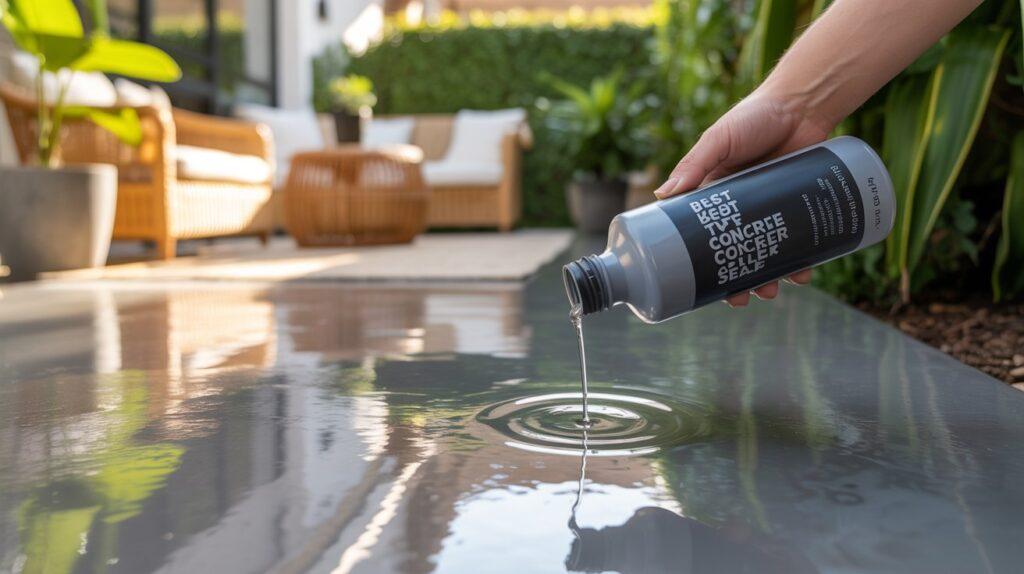
Polyurethane Sealers
Polyurethane sealers are a popular choice for concrete protection. They provide a durable and glossy finish. These sealers are often used on floors, countertops, and other surfaces. Polyurethane sealers offer excellent protection against stains, chemicals, and abrasion. They come in both water-based and solvent-based forms, each with its unique benefits.
Features Of Polyurethane Sealers
Polyurethane sealers have several key features. These features make them a preferred choice for many applications:
- Durability: Polyurethane sealers form a tough, long-lasting barrier.
- Glossy Finish: They provide a high-gloss finish that enhances the look of concrete.
- UV Resistance: These sealers resist yellowing and damage from UV exposure.
- Chemical Resistance: They protect against a wide range of chemicals and stains.
- Water-Based or Solvent-Based: Available in both types, each suitable for different needs.
Pros And Cons Of Polyurethane Sealers
| Pros | Cons |
|---|---|
|
|
Polyurethane sealers are a top choice for many concrete surfaces. Their durability and glossy finish make them stand out. Consider your needs and environment when choosing between water-based and solvent-based options.
Penetrating Sealers
When choosing the best type of concrete sealer, penetrating sealers are a popular choice. These sealers penetrate deep into the concrete surface. They provide long-lasting protection from within. This makes them highly effective for preserving the integrity of concrete.
Features Of Penetrating Sealers
Penetrating sealers offer unique features that make them stand out:
- Deep Penetration: These sealers absorb into the concrete, offering internal protection.
- Invisible Finish: They do not alter the appearance of the concrete.
- Breathable: They allow moisture vapor to escape, preventing damage.
- Durability: Long-lasting and resilient against environmental factors.
- Low Maintenance: Requires minimal upkeep once applied.
Pros And Cons Of Penetrating Sealers
Understanding the advantages and disadvantages helps in making an informed decision:
| Pros | Cons |
|---|---|
|
|
Choosing The Right Sealer
Choosing the right concrete sealer can make a big difference. You want your concrete surfaces to look good and last a long time. But with many options, how do you pick the best one? Here are some tips to help you decide.
Factors To Consider
Think about the location of your concrete. Is it indoors or outdoors? Outdoor concrete needs protection from weather. Indoor concrete needs protection from stains and spills.
Look at the type of concrete you have. Different sealers work better on different surfaces. For example, some sealers work best on driveways. Others are better for patios or garage floors.
Consider the finish you want. Some sealers give a glossy look. Others provide a matte finish. Your choice depends on your taste and the look you want to achieve.
Application Methods
Application methods also matter. Some sealers need to be rolled on. Others can be sprayed. Think about which method is easier for you. A roller might be better for flat surfaces. A sprayer can cover large areas quickly.
Read the instructions on the sealer. Some sealers need more than one coat. Others need a primer first. Make sure you have the right tools and enough time to do the job right.
Application Tips
Applying a concrete sealer properly ensures long-lasting protection. Follow these tips for a smooth application. This section covers preparation steps and common mistakes to avoid.
Preparation Steps
Proper preparation is key. First, clean the concrete surface. Remove dirt, oil, and stains. Use a pressure washer for deep cleaning. Let the surface dry completely. Next, repair any cracks or holes. Use a concrete patching compound. Ensure the area is smooth. Allow it to cure for the recommended time. Finally, tape off areas you don’t want sealed. Protect nearby surfaces with plastic sheets. This will keep the sealer in the desired areas.
Common Mistakes To Avoid
Avoid applying the sealer on a damp surface. This can cause bubbling. Do not apply too much sealer at once. Excess sealer can lead to an uneven finish. Avoid applying sealer in extreme temperatures. Too hot or too cold conditions can affect curing. Do not skip the manufacturer’s instructions. Each sealer has specific guidelines. Following them ensures the best results. Avoid using the wrong type of sealer. Match the sealer to your specific concrete needs. This ensures the sealer performs as expected.
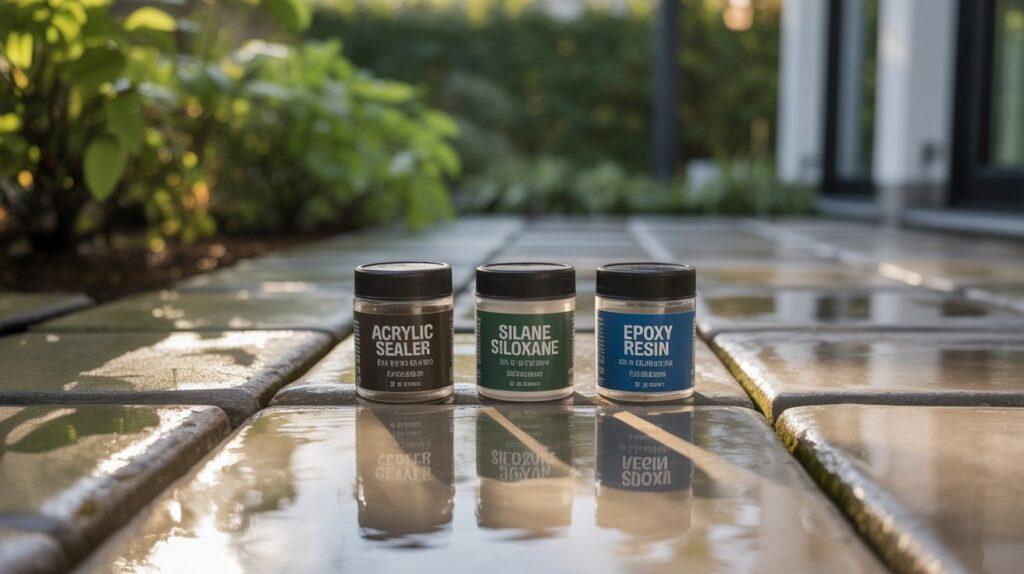
Maintenance And Longevity
Choosing the best type of concrete sealer involves considering its maintenance and longevity. Proper care ensures the sealer lasts longer and maintains its effectiveness. Understanding these factors will help you make an informed decision.
Routine Maintenance
Regular cleaning of sealed concrete surfaces is crucial. Use mild soap and water to clean the surface. Avoid harsh chemicals that can damage the sealer. Sweep or vacuum the surface to remove dirt and debris. This prevents scratches and wear.
Inspect the surface periodically for signs of wear. Look for areas where the sealer might be thinning. If you notice any damage, consider reapplying the sealer to those areas. This ensures consistent protection.
Extending Sealer Life
Proper application techniques extend the life of your concrete sealer. Follow the manufacturer’s instructions closely. Apply the sealer evenly and avoid pooling. Multiple thin coats are often better than one thick coat.
Protect the sealed surface from heavy traffic and sharp objects. Use mats or rugs in high-traffic areas. This reduces the risk of damage. Reapply the sealer as recommended by the manufacturer. This maintains its protective properties over time.
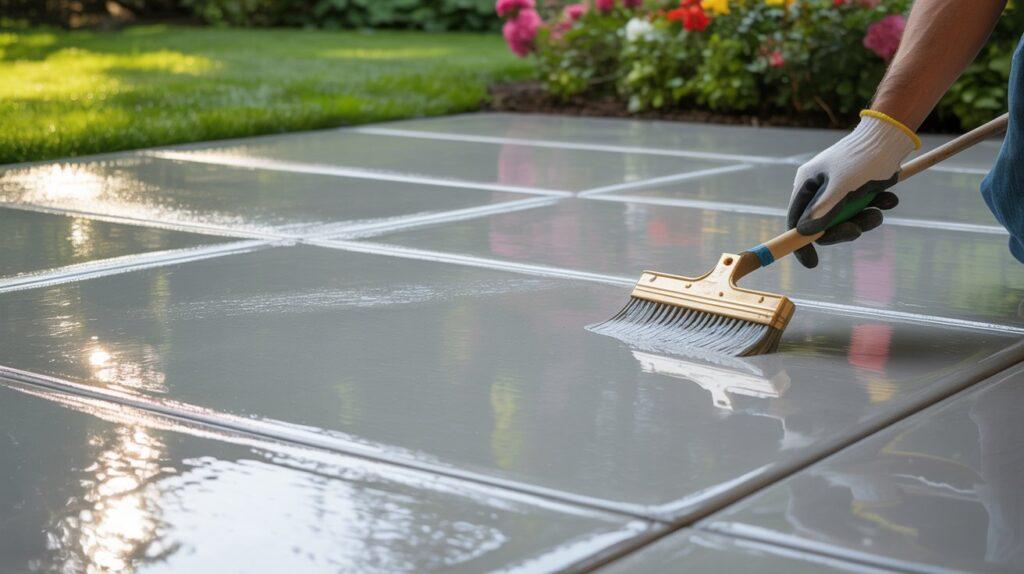
Frequently Asked Questions
What Is A Concrete Sealer Used For?
A concrete sealer protects concrete surfaces from damage, staining, and corrosion. It enhances durability and appearance.
How Long Does Concrete Sealer Last?
Concrete sealer typically lasts between 1-3 years. The lifespan depends on the type and usage conditions.
Can I Apply Concrete Sealer Myself?
Yes, you can apply concrete sealer yourself. Follow the manufacturer’s instructions for the best results.
What Types Of Concrete Sealers Are Available?
There are mainly two types: penetrating sealers and film-forming sealers. Each serves different purposes and provides different benefits.
Conclusion
Choosing the right concrete sealer can greatly impact your project. Consider your specific needs. Acrylic sealers offer quick drying. Penetrating sealers protect from within. Epoxy sealers provide a durable finish. Urethane sealers resist chemicals. Each type has unique benefits. Evaluate the environment and usage.
This ensures optimal results and longevity. Always read product labels and consult experts if unsure. Proper application makes all the difference. Protect your concrete surfaces effectively. Make an informed decision for the best outcome.

Hi Friends, I’m SealerMrinal, your go-to expert for all things sealing. With years of hands-on experience across a wide range of materials—concrete, wood, metal, and more—I bring deep knowledge and practical insights into every sealing project. On my website, I share expert tips, proven techniques, and product recommendations to help you get the best results. Whether you’re tackling a DIY project or seeking professional-grade advice, I’m here to guide you through the art and science of effective sealing.

